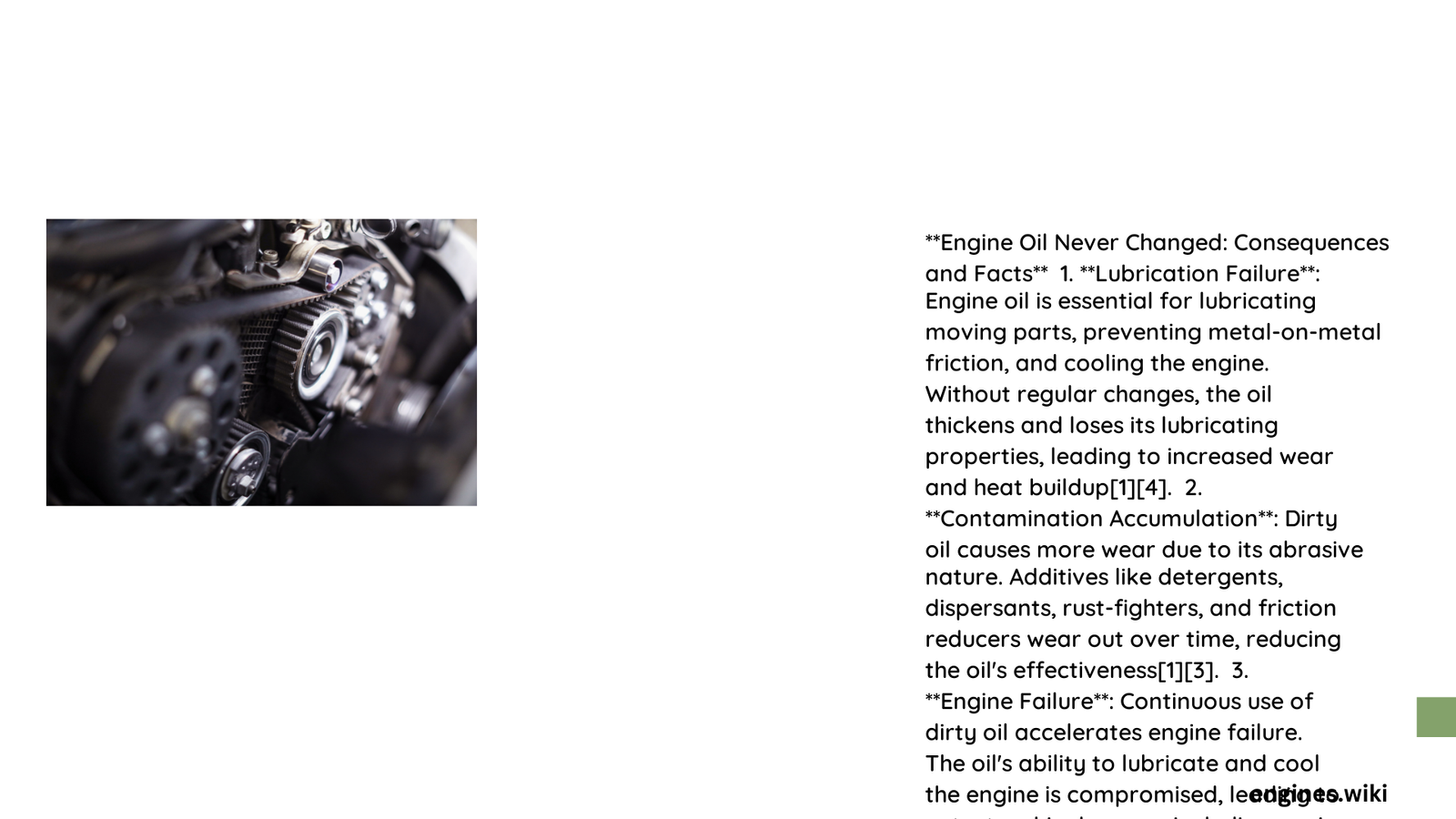What Happens When Engine Oil Never Changes?
Neglecting engine oil changes is like playing Russian roulette with your vehicle’s most critical system. When engine oil remains unchanged, it transforms from a protective lubricant into a destructive sludge that can cause thousands of dollars in damage. The consequences range from gradual performance degradation to complete engine failure, making regular oil maintenance not just recommended, but essential for your vehicle’s longevity.
How Does Engine Oil Deteriorate Without Regular Changes?
Chemical Transformation of Unused Oil
Engine oil undergoes dramatic chemical changes when left unchanged:
- Oxidation Process
- Oxygen reacts with oil molecules
- Increases total acid number (TAN)
- Generates harmful varnish and sludge deposits
-
Accelerates with higher temperatures
-
Thermal Breakdown Mechanisms
- Oil molecules break down under heat
- Viscosity increases dramatically
- Forms carbon and coke residues
- Performance degrades exponentially
| Temperature Increase | Oil Life Reduction |
|---|---|
| 10°C | 50% Reduction |
| 20°C | 75% Reduction |
| 30°C | 87% Reduction |
What Damage Occurs to Engine Components?
Lubrication System Breakdown
When engine oil never changes, critical components suffer:
- Bearing Surfaces: Increased friction leads to premature wear
- Piston Rings: Reduced lubrication causes compression loss
- Camshaft: Metal-to-metal contact accelerates degradation
How Much Does Neglecting Oil Changes Cost?
Potential Repair Expenses
Avoiding routine oil changes can result in catastrophic financial consequences:
- Minor Repairs
- Bearing replacement: $500 – $2,000
-
Piston ring repair: $1,000 – $3,000
-
Major Repairs
- Complete engine overhaul: $3,000 – $7,000
- Engine replacement: $4,000 – $10,000
What Are the Warning Signs?
Symptoms of Degraded Engine Oil
- Unusual engine knocking sounds
- Decreased fuel efficiency
- Illuminated warning lights
- Visible dark, thick oil
- Burning oil smell
Recommended Maintenance Strategy
Proactive Oil Change Practices
- Follow manufacturer’s recommended intervals
- Use high-quality oil appropriate for your vehicle
- Monitor oil condition regularly
- Consider synthetic oils for extended protection
Conclusion: Prevention is Cheaper Than Replacement
Regular oil changes represent a minimal investment compared to potential engine replacement costs. By understanding the risks of never changing engine oil, vehicle owners can protect their automotive investment and ensure optimal performance.

